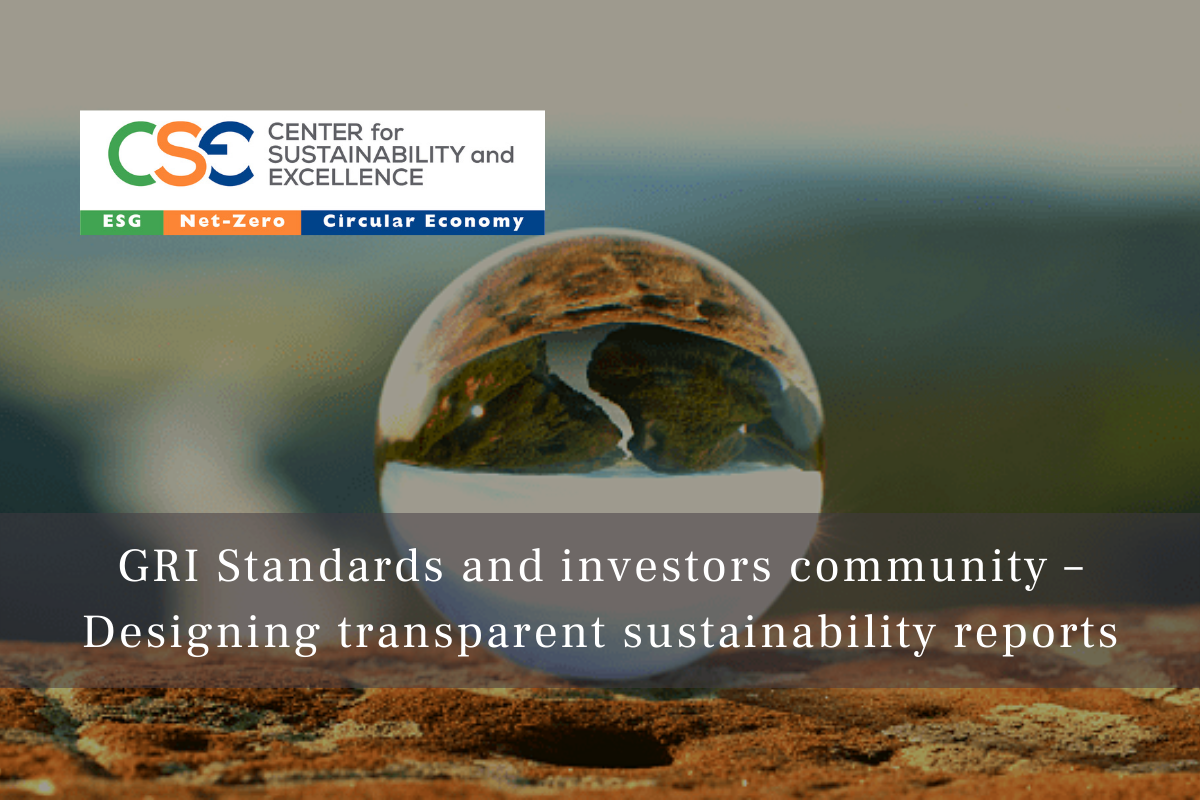Investors are increasingly interested in responsible investment, including ESG issues and appropriate disclosures. Better ESG information can lead to more meaningful and actionable insights by decision makers. Today, ESG investing is no longer a “voluntary” movement, but imperative in attracting capital, creating financial and competitive success. It has become the number one tool for investors looking for ways to generate positive investment outcomes and impact while managing financial risks and returns. This means that companies will undoubtedly experience increased pressure from investors to be able to report with transparency on their progress.
The Global Reporting Initiative (GRI) Standards have been strengthened so they deliver the highest level of transparency, but how easy is it for the investor community to trust ESG disclosures?
Most investors find it difficult to trust companies’ qualitative reports and rather prefer ESG disclosures in form of numbers and measurable data. Demanding data transparency is the way forward for investors to ensure that the ESG information provided is accurate and not misleading. The creation of the International Sustainability Standards Board (ISSB), announced only in November 2021, could prompt consolidation in the disclosure of financially material sustainability information within a globally accepted framework.
How to deepen your ESG transparency
- Standardization: there are several internationally accepted frameworks and standards any organization can reference or use as a guide to establish a complete environmental, social, and governance (ESG) reporting process. Aligning your portfolio with well-established reporting frameworks will both help your organization for important stakeholders to access, interpret and compare relevant data.
- Target the right ESG issue: Adopting a one-size-fits-all approach to all industries may result in missing out on important data and eliminating the chances to make a true impact. Do not focus on one specific scope, such as carbon footprint, and miss to consider the overall ESG performance.
- Build trust: Provide investors and other capital market participants with information about companies’ sustainability-related risks and opportunities to help them make informed decisions.
- Risk management: Monitor continuously the KPIs related to ESG and compare against targets and industry peers.
- Competitive advantage: Companies that understand the implications of sustainability to their business models can use this information to both enhance and develop new products and services.
CSE’s Certified Sustainability (ESG) Practitioner Program on February 24-25 & 28, 2022 will focus on the most important issues of ESG and disclosures in USA. Take this opportunity to upscale your knowledge with the latest strategic insights, along with other Business leaders and C-suite executives in corporate responsibility, sustainability, ESG, marketing and investors’ relations. Claim the last spots. Reach us at [email protected]
Keep up with the latest trends by enrolling in the certification package program (both CSE’s leading programs): the Certified Sustainability ESG Practitioner Program & the GRI Certified Standards Training Course – Reporting with the NEW GRI Universal Standards. Improve your knowledge with the latest strategic insights that will uncover potential for innovation and market differentiation. Don’t miss the opportunity to acquire the professional certification of attendance issued directly by GRI, the world’s leading standard setter for sustainability disclosure!
Request more information at [email protected]







